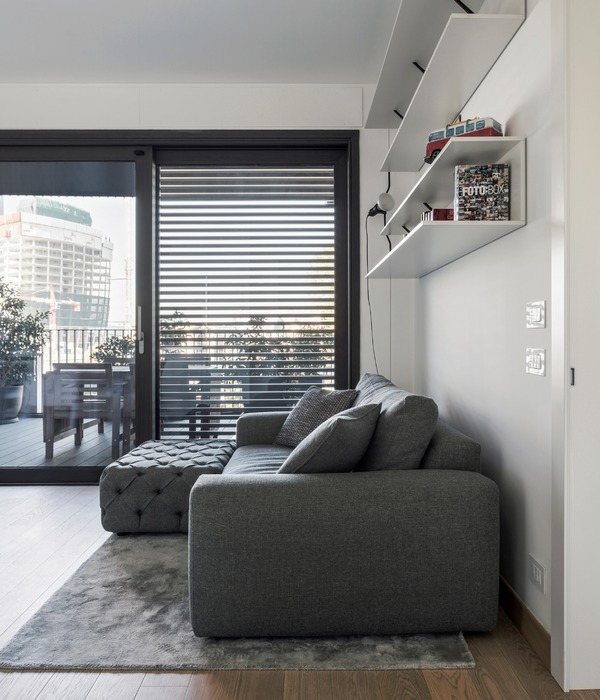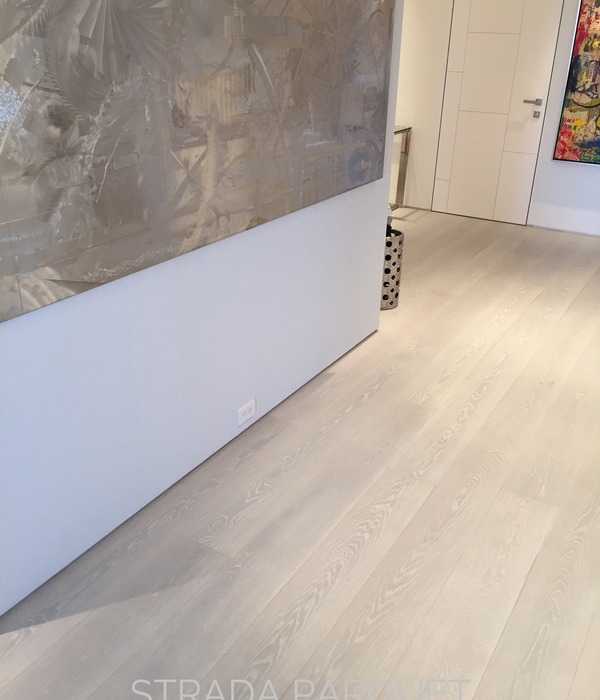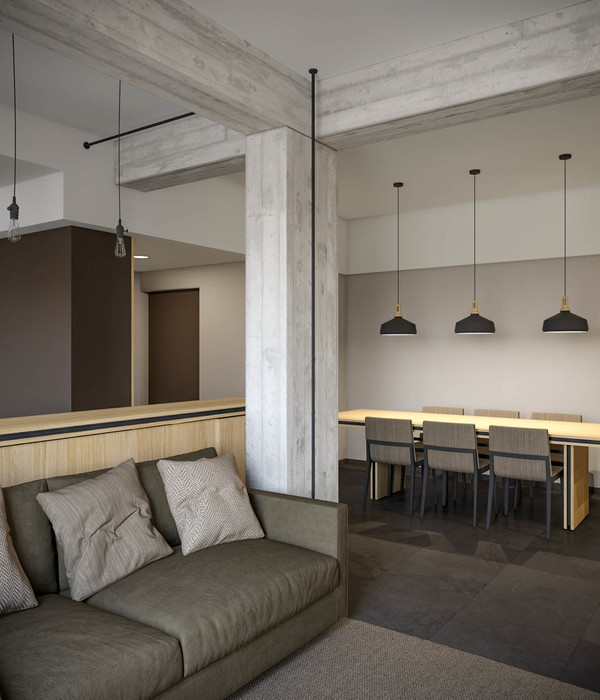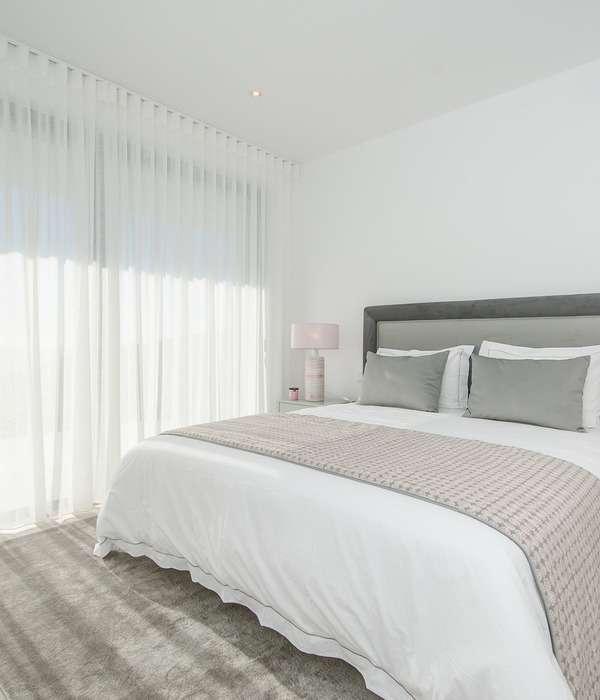鸣铃之树是一件由风驱动的声音雕塑作品,外形如同一棵伫立于山顶之上的大树。项目位于英格兰兰开夏郡的奔宁山脉,俯瞰伯恩利。远远望去,雕塑的轮廓缓缓浮现于地平线之上,在雾中时隐时现。
The Singing Ringing Tree is a wind powered sound sculpture resembling a tree set in the landscape of the Pennine hill range overlooking Burnley, in Lancashire, England. From far and wide, the tree’s profile is visible on the horizon, appearing and disappearing in the mist.
2007年,这座雕塑(与其他13个候选作品一起)获得了英国皇家建筑师协会(RIBA)颁发的国家杰出建筑奖。2017年3月,在美国德克萨斯州奥斯汀郊区一个名为Manor的小镇乡村地区,第二棵鸣铃之树悄然升起。
In 2007, the sculpture won (along with 13 other candidates) the National Award of the Royal Institute of British Architects (RIBA) for architectural excellence. In March 2017, a second Singing Ringing Tree was set on the outskirts of Austin, Texas in the United States in the rural area of a small town called Manor.
▼雕塑位于山顶俯瞰着周围的乡村景观,The sculpture sits atop a hill overlooking the surrounding countryside ©Tonkin Liu
为了重建兰开夏地区公园(Lancashire Regional Park),Mid-Pennine Arts在当地举办了一场名为“全景”(all-seeing)的建筑竞赛,设计场地选在多处废弃的高地观景点上,从这些观景点均能望见美丽的乡村景色。竞赛的主题是设计一个地标装置以及一处休憩亭,旨在为公众提供一个绝佳的观景场所,从而达到将城市居民吸引到周边美丽的自然景观中的目的。
The architectural competition for “all-seeing” structures on a number of derelict, high-point sites, was organised by Mid-Pennine Arts, for the regeneration of the Lancashire Regional Park. These sites all command outstanding views of the countryside. The brief was for a landmark and a shelter, a place from which the public can enjoy the landscape with the aim to draw city residents into the beautiful landscape that surrounds them.
▼雕塑外形如同一颗伫立于山顶之上的大树,The shape of the sculpture is like a tree standing on the top of the hill ©Tonkin Liu
在伯恩利上方的Crown Point旧址,有一间废弃的砖房与两根无线电桅杆,从周围的城镇望去,这些废弃的结构带给人们不适的视觉体验。如今这破败的景象则被鸣铃之树所取代。为了最大限度地优化观景视野,设计师将砖房的上部拆除,并将拆除下来的砖石填埋在砖房下部空间中,构成了坚固的地基,然后在其上加设了由混凝土浇筑的装置基座。装置周围的地面被土壤和草皮覆盖,形成一个自然的小土丘,土丘上的小径则为人们在植被茂密的沼泽环境中指明了通路。
The Crown Point site above Burnley, with a brick shed and two radio masts, has long been an eye-sore visible from the surrounding towns. Our proposal replaced the shed and the masts. To maximise visibility, the base was raised by building on the lower part of the brick shed. The top half of the shed was demolished, and the rubble formed the hard core onto which a concrete base was made. The mound was then covered with soil and turf and new fenced paths were created through the boggy landscape.
▼扭转的雕塑曲线,twisted sculptural curve ©Tonkin Liu
▼装置周围的地面被土壤和草皮覆盖并设有一条小径, The ground around the installation is covered with soil and turf and a trail is provided ©Tonkin Liu
装置由不同长度的钢管堆叠而成。从伯恩利(Burnley)望去,树的侧面轮廓出现在地平线上。并在雾中时隐时现。每一层钢管与下一层相差15度,以呼应风向的变化。当风通过不同位置、不同长度的管道时,雕塑将演奏出不同的和弦。每当人们来到这里、席地而坐,都将聆听到不同的乐曲。
The tree is constructed of stacked pipes of varying lengths. From Burnley, the tree’s profile will be visible on the horizon. It will appear and disappear in the mist. Each layer differs from the next by 15 degrees to respond to the changing wind directions. As the wind passes different length pipes in different layers it will play different chords. Each time you sit under the tree you will hear a different song.
▼当风吹过,雕塑将演奏出不同的和弦,As the wind passes it will play different chords ©Tonkin Liu
低碳钢材质,使管道制作在尺寸与壁厚上拥有极大的灵活度,进而满足了设计师预想中对装置结构与其发出不同声响的要求。由于装置较重,建造过程十分困难,但是不对称的形式与装置的自重却有限抵抗了风力荷载与外力作用下的倾覆。与不锈钢或铝不同,低碳钢的焊接成本相对较低。钢管表面的镀锌层不仅防止了生锈,同时也赋予了雕塑闪亮的外观。随着时间的推移,光滑的表面会微微变钝,但仍然以一种有趣的方式反射着光线。
Mild steel comes in a variety of size with walls of variable thickness. This gave us the variability to develop the structure and sound. Being heavier, the fabrication process was more difficult but the weight helped with the mass required to resist overturning under wind load and live loads, due to the asymmetric form. Unlike stainless steel or aluminium, mild steel can be relatively cheaply welded. To prevent rusting the steel was galvanised which gave a shiny appearance when the construction was new. This has dulled slightly over time whilst still reflecting light in an interesting way.
▼悬挑出来的雕塑顶端,The cantilevered top of the sculpture ©Tonkin Liu
▼不同长度的镀锌钢管堆叠在一起,每一层都略微旋转, Galvanized steel tubes of different lengths are stacked on top of each other, with each layer rotated slightly ©Tonkin Liu
钢管的重量通过每一层之间的环形钢圈传递,钢圈侧面由水平螺栓加固,钢圈底部则直接焊接在下层钢管之上。装置的每一层都略微旋转了一个角度,钢圈则在每层的钢管之间起到了连接与支撑的作用。钢管的末端超出钢圈一段距离,形成悬臂,巧妙地减轻了最底部基座的负担。
The tubes were arranged in such a way that the weight of each layer is transferred by steel rings that are bolted together by horizontal bolts in shear to the layer below. The rings also act to tie the tubes in each plane to each other. As the layers are rotated slightly, one to the next, the twist provides horizontal in-plane bracing. The ends of the tubes simply cantilever past the lines of support provided by the rings and the tubes provide a load path for the weight down to the foundation.
▼平面图,plan ©Tonkin Liu
▼剖面图,section ©Tonkin Liu
Project size: 6 m2 Completion date: 2006 Location: Burnley, United Kingdom Project team: Design Team: Tonkin Liu Fabrication: Mike Smith Studio Structural Engineer: Jane Wernick Associates
{{item.text_origin}}












